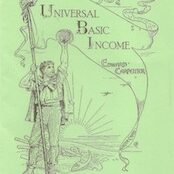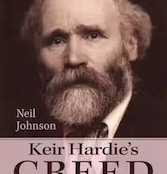DAVID CONNOLLY wonders what happened to Tony Blair’s once passionate support for one member one vote.
In his book, The Unfinished Revolution, the new Labour strategist Philip Gould comments on the rivalry between Tony Blair and Gordon Brown at the time of John Smith’s death in 1994. Of Blair he says that “it was his work on one member one vote which really made the difference to his leadership credentials”.
Gould then describes the tension between the conservatively-minded John Smith and the more radically-minded Blair on this issue. Blair, he says, was “endlessly frustrated by the pace of change. He was continually pushing forward, much to the annoyance of John Smith, who was trying to pull him back … Smith was constantly telling Blair to slow down. He would say, ‘Tony, you are being too intellectual about this’, when Blair started to talk about OMOV.” Blair’s position was indeed quite radical. According to John Rentoul’s biography, written in January 1993, he went on television to say, “We have got bloc votes determining everything. That’s all got to go.”
At the 1993 Labour Party conference Smith used the threat of resignation, and some underhand manipulation of the MSF bloc vote, to push through a compromise with the trade unions which created a peculiar and limited version of OMOV for selecting parliamentary candidates. Gould says that “Blair thought the settlement was too timid … he thought there was an opportunity after 1992 to have a real symbolic break with Labour’s past and the opportunity wasn’t being grasped”. Even as late as July 1997 Blair declared in Darlington that all important decision in the party should be made by OMOV.
New times
How times change. John Smith would surely find Blair’s approach to party management somewhat less “intellectual” now. Following the trend set in the Welsh, Scottish and European elections, the sorry tale of unsubtle manipulation continued in the selection contest for London mayor. In particular, a straightforward system of OMOV was dumped in favour of an electoral college which gives a major influence to the thoroughly vetted Greater London Assembly candidates and to London Labour MPs. Doubtless, their political careers would have come to a shuddering halt should they happen to have supported the wrong candidate.
It is, of course, unrealistic to imagine that in a selection as symbolically important as this one the leadership is not going to indicate who it wants as the candidate. After all, in the contest for deputy leader in 1981 Michael Foot said many an unkind word about Tony Benn. Any leadership has the right to give a lead to its members but, to use a Blairite phrase, every right must be matched by a responsibility. This means that, at the very least, it must not impugn the integrity of the unfavoured candidates and, above all, it must ensure that the contest is conducted on a level playing field. By these criteria the party machine consciously and deliberately defaulted on its responsibilities.
As far as the vast majority of party members are concerned the Labour Party is still, and should remain, a broad church. ‘New’ Labour has no right to insist that all the party’s candidates reflect only its own brand of political thought. Whatever our criticisms of his past record, not least his uncritical support for Irish republicanism, Ken Livingstone is a part of that broad church, and both he and Glenda Jackson have a right to be treated fairly and with equity. To win, Livingstone needed an overwhelming majority of support among the individual party members. The leadership’s crude mishandling of the situation meant this was not impossible.
Access
One of the most worrying aspects of the campaign was the question of access to the lists of London party members. By one dubious route or another, Millbank made the lists available to Frank Dobson’s campaign at an early stage. Shamelessly, they offered to organise two mail shots for the Livingstone and Jackson campaigns provided they were each prepared to pay a handling fee of £6,000, 10 per cent of a candidate’s spending limit. They subsequently relented and gave the lists to both campaign teams, but not before one Dobson spokesperson was quoted as saying, “Any candidate who can’t get hold of the lists is obviously disadvantaged but that’s politics.” Not the kind of politics any self-respecting democrat would want to be associated with.
Paul Boateng, the Home Office minister and former GLC councillor, took the cynicism further when he said on Panorama, “Politics is about making sure that you have the right processes to arrive at the result that enables you to do a job of work.” In other words, the end justifies the means irrespective of democratic norms, a dangerous piece of self-justification used by countless anti-democrats over the years. If, at the beginning of the 21st century, there is anyone who remotely identifies with the Left who has not learnt to value the democratic process in itself, then they must have no sense of history.
It is also sad to see that the antics of some colleagues in the Cooperative movement have hardly provided a beacon of best practice either. By the casting vote of the chair, the CWS South London Coop Party Council decided to have what it called a “full consultation” on how its bloc vote should be cast. As this vote counts for 4.5 per cent of the total electoral college the outcome of this is not without significance. But how do you measure the outcome of a consultation where no votes are cast? It is a notoriously subjective process about which the Guardian wrote a damning two page article. We can only hope that minimum damage has been done to the CWS campaign to promote itself as the “ethical retailer”.
Restrict debate
Then, as if to demonstrate that there are few, if any, limits to the audacity of the Millbank mindset we learn that the January meeting of the National Executive Committee discussed proposals to restrict debate at its own meetings. Unison official and NEC member Maggie Jones suggested that “there should not be a presumption of speaking rights on every issue. The chair should exercise discretion on whether a debate is exhausted.”
In reality, a good chair always exercises discretion but only after allowing everyone who wants to speak to do so, at least once. Gradually eroding and diminishing the status of the NEC has been one of the key parts of the “regeneration project”. This proposal takes it a stage further.
Meanwhile, amidst the manipulation, gerrymandering and proposed censorship, the official language of the “project” remains that of “empowerment”. The 21st Century Party consultation document on the future structure of constituency Labour Parties states, and I kid you not, “Our aim must be to give the Party back to its membership, to empower members. More than ever in the 21st century members will be the key to our future.” This is definitely the sort of thing Tony Blair might have said – in 1993, of course.



22 October 2010
[…] Labour Watch David Connolly wonders what happened to one member one vote. Pushed into enemy hands Bernard Hughes on how the leadership is turning even some of its closest friends into foes. Impassable impasse? Paul Dixon wonders what next for the Northern Ireland peace process. A task of two halves Adam Brown reports on an acrimonious end to the Football task force.. […]